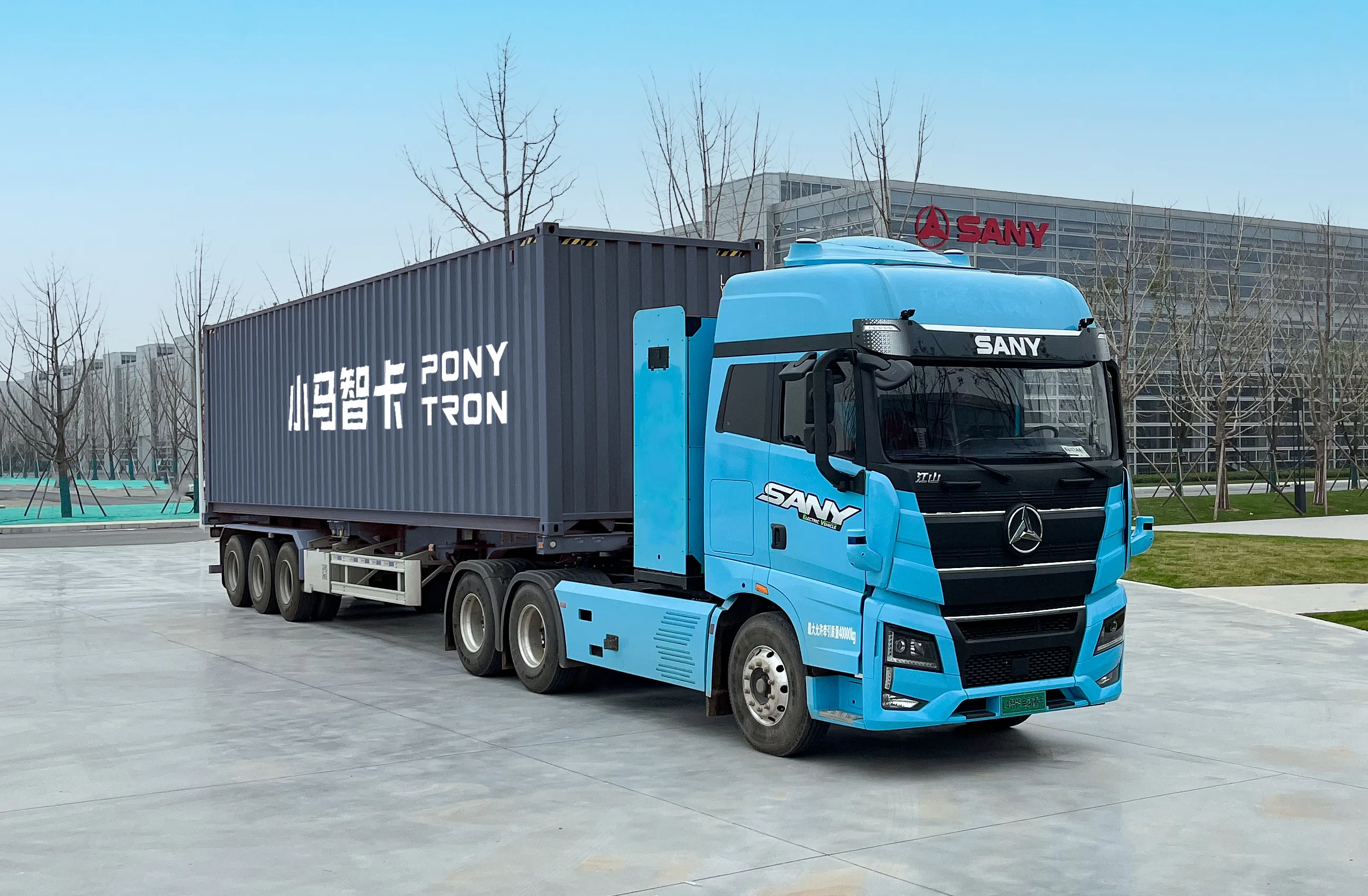
Autonomous driving tech firm Pony.ai has got on board with Chinese manufacturer Sany Heavy Truck to mass produce autonomous trucks.
The joint venture (JV) will create Level 4 vehicles powered by Pony.ai’s autonomous driving controller (ADC), built on Nvidia Drive Orin system-on-chip.
“Integrating Pony.ai's core autonomous driving technologies with the capabilities of Sany enables our joint venture to create a successful intelligent truck and logistics ecosystem for L4 autonomous trucking,” said James Peng, Pony.ai’s CEO and co-founder.
Small-scale deliveries of the robotrucks are planned in 2022 and 2023, with mass production of the L4 truck in 2024 "and within a few years will reach an annual production of around 10,000 trucks".
The first prototype was built on Sany's new electric truck platform and has already been road tested.
Pony.ai is following what it calls a “golden triangle” strategy with autonomous trucks, partnering with manufacturers and logistics providers.
Consumers worldwide "will benefit from the development of commercial-scale L4 trucking, including more robust supply chains, lower costs for delivered goods, enhanced road safety, and significantly reduced greenhouse gas emissions", the company says in a statement.
The JV’s autonomous truck product portfolio will include a mix of new energy vehicles (NEVs) and fuel-based, with the aim to increase the proportion of NEV trucks in the future.
In 2021, heavy truck sales in China exceeded 1.3 million units. With mass production, the partners expect the penetration rate of L4 trucks in China’s heavy truck market to increase steadily.
Liang Linhe, chairman of Sany Heavy Truck, said it was the "ultimate collaboration between truck ‘body’ and truck ‘brain’ and thus makes it possible to mass produce high-level autonomous trucks".
"[It] will advance autonomous trucking and logistics well into the future and will lead to a safer, more efficient, intelligent logistics system."
In June, Pony.ai released its ADC designed for automotive-grade mass production, and the company has already formed the Cyantron JV with Sinotrans, which "aims to enhance the digitalisation and intelligence of the transportation process".
Pony.ai says robotrucks can save 10%-20% of energy compared with conventional trucks.








